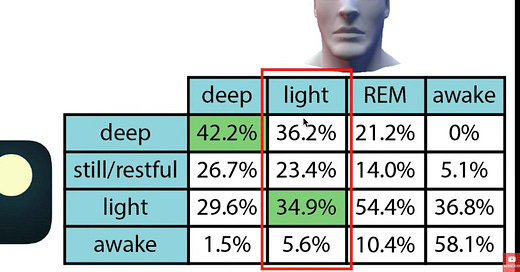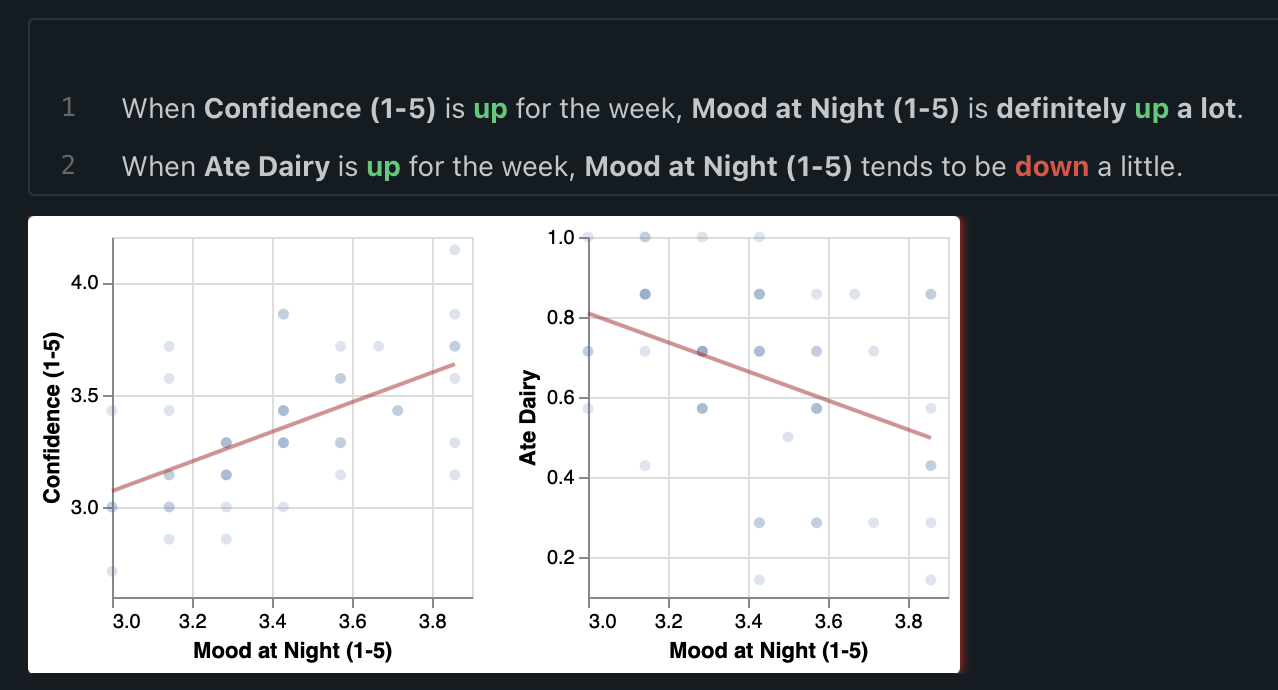Personal Science Week - 16 Jun 2022
How old is your hearing, Self-tracking videos, tracking without goals, and more
How old is your hearing?
Click on this easy self-test from UK Education company e-chalk. It plays several seconds of a steadily increasing pitch. You hit the stop button when you can no longer hear it, and by comparing your response to others it calculates your estimated age. Works on mobile or desktop and takes only a few seconds. I found the answer to be uncannily close to my actual age.
Best self-tracking videos
Rob ter Horst is hands-down the best practical information source for good self-tracking devices. His YouTube channel is full of gems, including rigorous testing of various products which he compares to their clinical-grade equivalents.
For example, compared to a professional clinical grade sleep monitor, he finds that Autosleep consistently misses its estimations for sleep phases. He prefers Sleepcycle, which maybe doesn’t try to be so precise but at least gives a more useful summary of how well you slept.
Watch the whole well-produced 16-minute video here.
and check out his tests of Oura Ring. Tldr; he that concludes Oura is a reasonable alternative to professional devices (see this paper too).
And much more.
DailyVis is cool QS number-crunching but are there any insights?
Useful health-related tips must be:
Non-obvious. (Don’t say “eat more fruits and vegetables”)
Actionable. (Don’t say “You’re going to get Alzheimers Disease”)
The author of the impressive new DailyVis site tracks 80 metrics every day going back to 2017. With well-designed and informative visualizations thefedoration claims to have found “surprising, meaningful, and actionable” results.
But a closer look and I wonder how really meaningful they really are.
Here’s one example:
Is it really surprising that “confidence” would correlate with “mood at night”. On the contrary, it would be more surprising if it didn’t.
I don’t want to pick on an otherwise excellent example of Personal Science in action. The author clearly obeys the basic principles of Nullius in verba — take no one’s word for it — carefully tracking and analyzing data for himself. Science doesn’t have to have a purpose.
But if you want insights that are personal and scientific, don’t you need a way to decide if your data collection was worthwhile? When you find conclusions that are obvious, it’s reasonable to wonder if maybe you could have, well, skipped the “scientific” part.
About this newsletter
People who do science for a living are professional scientists. Personal scientists do it for themselves. But you don’t practice science by watching, no matter how wonderful you find nature or technology. Personal scientists treat science as a verb: something you do, not something you read about.
This newsletter is a weekly summary of a few observations we think will be interesting to anyone who wants to be a personal scientist. Press the button below to share a (free) subscription with others.




